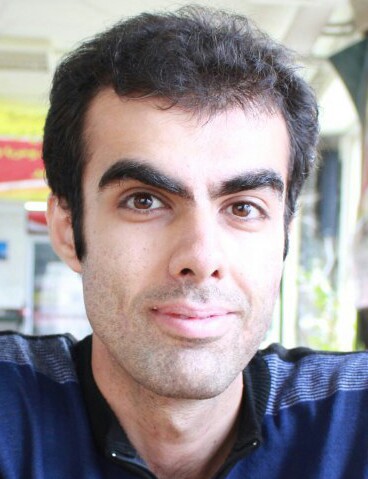
ESR 6
Sina Shahmoradi
Teacher orchestration of child-robot interaction

Teacher orchestration of child-robot interaction
As a doctoral assistant in EPFL, I work in CHILI Lab (Computer-Human Interaction in Learning and Instruction) under supervision of professor Pierre Dillenbourg. Within the Marie Sklodowska Curie European Training Network ANIMATAS project, I would like to assess and improve learning gain of children in classrooms. In this way, we work on learning technologies using multidisciplinary approaches, including computer science, Internet of Things, neuroscience, psychology and so on. In addition to learning, I’ve worked and I’m interested into a wide range of research areas: I studied mechanical engineering as my bachelor degree in K.N. Toosi university (Tehran, Iran). During my master degree in Sharif University of Technology (Tehran, Iran), I worked on machine learning, biomechanics and wearable sensors. Before starting my PhD, I worked on bio signal processing and fatigue assessment in exercises under supervision of Dr. Behzadipour in Djawad Mowafaghian neuro-rehabilitation center. In brief, I’m a biologist in heart and a computer scientist in mind.
Ecole Polytechnique Fédérale de Lausanne (EPFL)
Pierre Dillenbourg (EPFL), in association with Ana Paiva (INESC-ID)
Instituto de Engenharia de Sistemas e Computadores - Investigação e Desenvolvimento (INESC-ID)
As teachers manage their classrooms, the introduction of technological tools could allow them to better orchestrate individual learning. In this context, the aim of this ESR project will be to model this mix agent group in which the robot(s) will be involved in a learning task with children and where the teaching session will be orchestrated by the teacher. Several scenarios in school will be investigated, including one or many robots in classrooms interacting with one or many children and exploring various orchestration strategies enabling teachers to manage and visualise learning in the classroom.
After reviewing the literature in joint attention, mutual modeling and mix-agent modeling, the ESR will investigate methods for adaptation to the child in a learning task orchestrated by a teacher/therapist. It will consist of considering learning needs of the child and orchestration inputs from the teacher. The proposed approaches will be evaluated via real experiments with children in learning contexts.
Completed draft of PhD dissertation, software and algorithms for teacher-child-robot interaction, peer-reviewed publications, international journal and conference publications